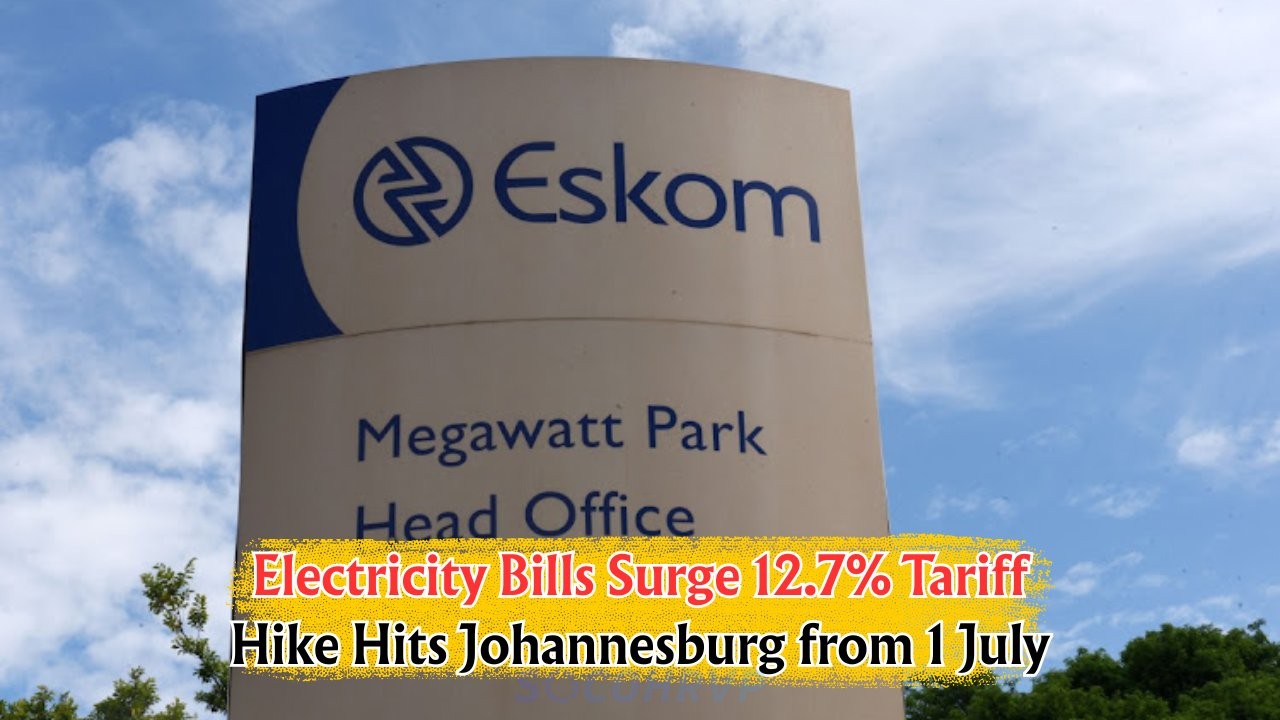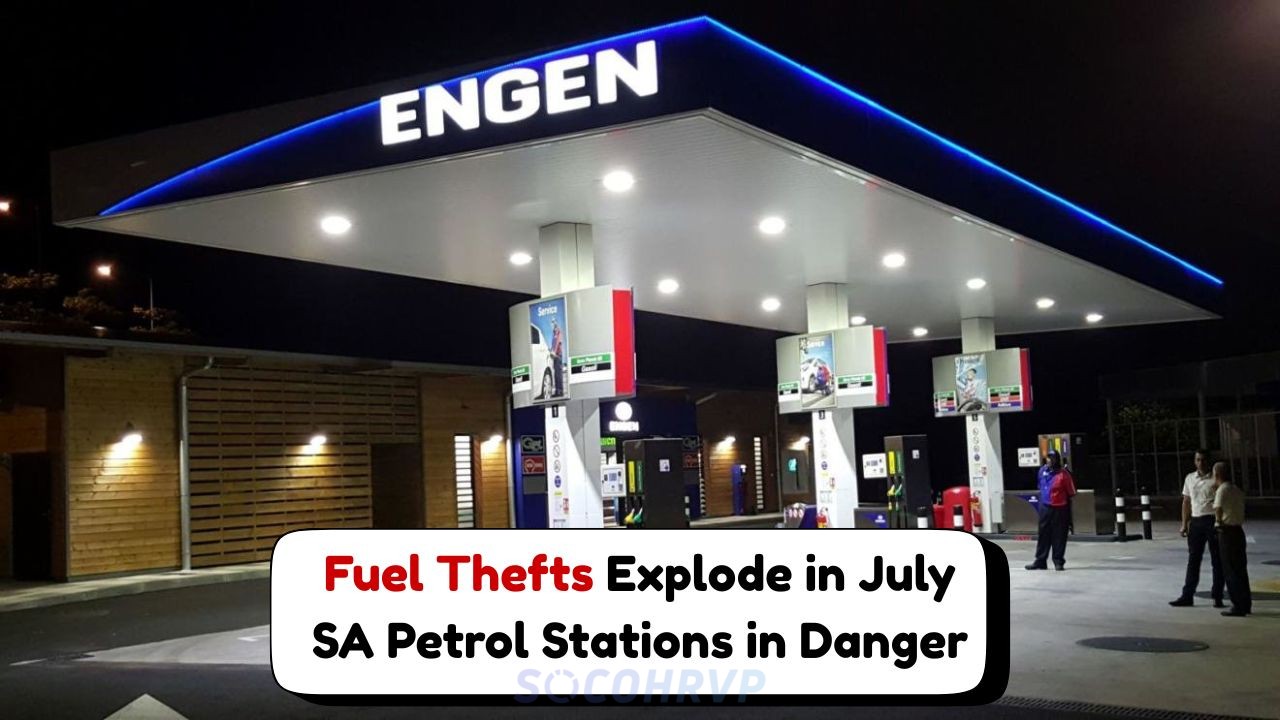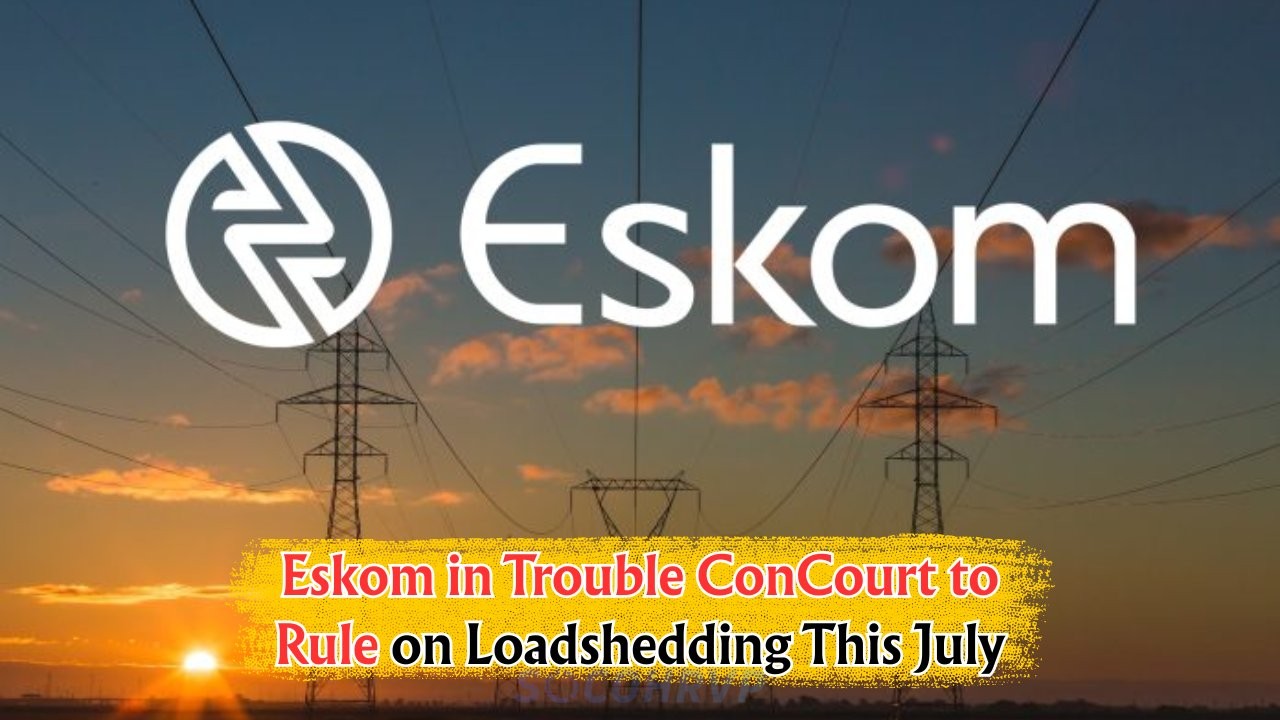Johannesburg Electricity Tariff Hike: On 1 July, residents of Johannesburg are bracing themselves for a significant increase in their electricity bills as a 12.7% tariff hike is set to take effect. This change has sparked a mixture of concern and frustration among the city’s inhabitants, with many worried about the impact on their monthly expenses. The electricity tariff hike is part of a broader national trend of increasing utility costs, reflecting rising operational and maintenance expenses faced by energy providers. As Johannesburgers prepare to adjust their budgets, the hike has also reignited discussions around energy efficiency and alternative power solutions in South Africa’s most vibrant city.
Understanding the 12.7% Tariff Increase in Johannesburg
For many residents, the news of a 12.7% electricity tariff hike comes as a surprise, stirring concerns about the financial burden it imposes. This increase is part of a nationwide adjustment in response to escalating costs within the energy sector, including maintenance and infrastructure development. The National Energy Regulator of South Africa (NERSA) approved this hike after a thorough review process, considering factors such as the need to maintain a reliable power supply and support infrastructure upgrades. As the city grapples with this change, there is a growing push for transparency and accountability in how these funds are allocated and utilized, ensuring that consumers receive value for their increased payments.
- Background on tariff adjustments and regulatory oversight.
- Impact of operational costs on energy pricing.
- Role of NERSA in regulating electricity tariffs.
- Importance of infrastructure investment for reliable power supply.
Effects of the Tariff Hike on Johannesburg Residents
The implementation of the 12.7% tariff hike is expected to have a pronounced impact on households and businesses across Johannesburg. For many families, this increase means adjusting their monthly budgets to accommodate higher utility bills. Small businesses, already grappling with economic challenges, may face additional pressure as their operational costs rise. This scenario underscores the need for energy efficiency and the adoption of alternative energy solutions, like solar power, to mitigate the financial strain. Furthermore, consumer advocacy groups are calling for more support mechanisms for low-income households, ensuring that essential services remain accessible to all.
| Month | Previous Rate | New Rate | Percentage Increase | Impact on Monthly Bill (R) |
|---|---|---|---|---|
| June | R300 | R338 | 12.7% | R38 |
| July | R450 | R507 | 12.7% | R57 |
| August | R600 | R676 | 12.7% | R76 |
| September | R750 | R845 | 12.7% | R95 |
| October | R900 | R1014 | 12.7% | R114 |
| November | R1050 | R1183 | 12.7% | R133 |
| December | R1200 | R1352 | 12.7% | R152 |
Strategies to Mitigate the Impact of Electricity Price Hike
In light of the upcoming electricity tariff increase, residents of Johannesburg are encouraged to explore various strategies to minimize their electricity consumption and manage costs effectively. Implementing energy-saving practices can significantly alleviate the financial burden of the price hike. One way to achieve this is by investing in energy-efficient appliances and utilizing smart technology to monitor and reduce power usage. Additionally, shifting to renewable energy sources, such as solar panels, can provide long-term savings and sustainability benefits. Government incentives and programs may also offer support for residents transitioning to greener energy solutions, making it a viable option for many who seek to cut down on utility expenses.
 Nissan Navara Stealth Debuts 10 July at R695,200 – Is Toyota Hilux Facing Its First Real Challenger?
Nissan Navara Stealth Debuts 10 July at R695,200 – Is Toyota Hilux Facing Its First Real Challenger?
- Adoption of energy-efficient appliances and smart meters.
- Investment in solar power and other renewable sources.
- Participating in government energy-saving programs.
- Community initiatives promoting sustainable energy practices.
Comparing Electricity Tariffs Across Major South African Cities
The 12.7% tariff hike in Johannesburg raises questions about how the city’s electricity costs compare with other major urban areas in South Africa. While Johannesburg may experience a significant increase, it’s important to consider the broader context of energy pricing across the nation. Cities like Cape Town and Durban also face their unique challenges and adjustments in electricity tariffs, influenced by local factors such as infrastructure and demand. Understanding these differences can provide valuable insights for consumers and policymakers alike, highlighting potential areas for improvement and collaboration in the energy sector.
| City | Current Rate (R/kWh) | New Rate (R/kWh) | Percentage Increase | Average Monthly Bill (R) |
|---|---|---|---|---|
| Johannesburg | R1.50 | R1.69 | 12.7% | R845 |
| Cape Town | R1.45 | R1.63 | 12.4% | R820 |
| Durban | R1.40 | R1.57 | 12.1% | R790 |
| Pretoria | R1.55 | R1.75 | 12.9% | R870 |
| Port Elizabeth | R1.48 | R1.67 | 12.8% | R830 |
Government and Municipal Support for Affected Residents
The government and local municipalities are acutely aware of the challenges posed by the electricity tariff hike and are considering various measures to support affected residents. Among these measures are subsidies for low-income households, aimed at alleviating the financial strain on vulnerable communities. Additionally, educational programs focusing on energy conservation and efficiency are being rolled out to empower residents with the knowledge to reduce consumption. These initiatives underscore the importance of collaboration between government, municipalities, and citizens to address the challenges of rising energy costs and to foster a more sustainable future for Johannesburg.
- Subsidies for low-income households.
- Educational programs on energy conservation.
- Collaboration between government and community organizations.
- Incentives for renewable energy adoption.
Alternative Energy Solutions Gaining Traction in Johannesburg
As the city of Johannesburg faces this electricity tariff hike, there is an increasing interest in alternative energy solutions among residents. Solar energy, in particular, is gaining traction as a viable option for reducing dependency on the national grid and minimizing electricity costs. The city’s sunny climate makes it an ideal location for solar panel installations, and more residents are exploring this sustainable energy source. The shift towards alternative energy is also supported by government incentives and financing options, making it accessible to a broader segment of the population. This transition not only offers cost savings but also contributes to environmental sustainability, aligning with global efforts to combat climate change.
- Advantages of solar energy in urban settings.
- Government incentives for renewable energy adoption.
- Financing options for solar panel installation.
- Environmental benefits of reduced carbon footprint.
FAQs on Johannesburg’s Electricity Tariff Hike
- Why is there a 12.7% increase in electricity tariffs? The increase is due to rising operational and maintenance costs within the energy sector.
- How will this affect my monthly electricity bill? The impact varies based on consumption, but households can expect an increase in their overall utility expenses.
- Are there any support programs available? Yes, there are subsidies and educational programs aimed at helping residents manage the cost increase.
- What are some ways to reduce electricity consumption? Implementing energy-efficient appliances, using smart technology, and considering renewable energy sources are effective strategies.
- Is solar energy a good alternative? Yes, solar energy is a viable and sustainable option, especially given Johannesburg’s sunny climate.
Energy Efficiency Tips for Johannesburg Residents
Simple adjustments can lead to significant savings on your electricity bill. Consider these tips:
1. Switch off appliances when not in use.
2. Use LED bulbs instead of incandescent ones.
3. Insulate your home to maintain indoor temperature.
4. Schedule regular maintenance for electrical appliances to ensure efficiency.5. Consider solar water heaters to reduce geyser energy consumption.
Community Initiatives Supporting Energy Conservation
1. Community solar projects providing shared energy solutions.
2. Workshops and seminars on sustainable living practices.
Business Opportunities in the Renewable Energy Sector
1. Growing demand for solar installation services.
2. Development of energy storage solutions.
3. Innovative financing models for renewable energy systems.
Potential Challenges in Implementing Energy Alternatives
1. Initial cost of solar panel installation.
2. Navigating regulatory requirements for home installations.







